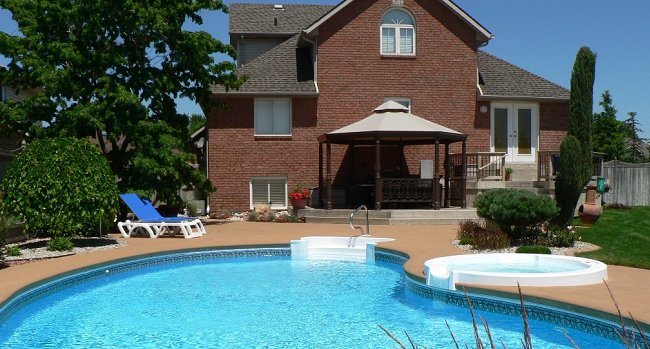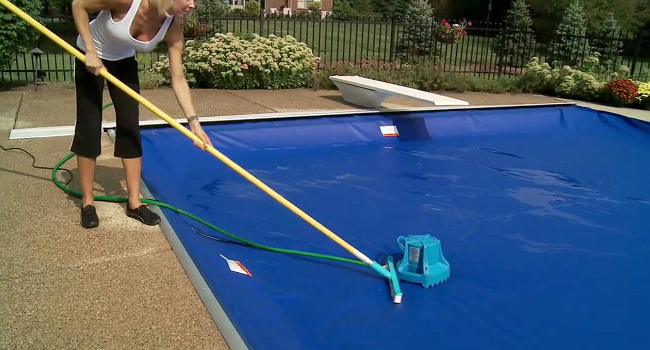 It’s a fact amongst boaters that there are a lot of things that can go wrong on a boat — even when you’re not there! Leaks, break-ins, fires and power outages are some of the constant worries, especially for owners who are away from their boat for short or long periods of time. Fortunately, there are a variety of boat alarms and boat security systems available today that will remotely monitor conditions on your vessel and notify you immediately via text message or phone call if there’s a problem, whether the boat is bobbing on a mooring in the bay, docked at a slip in a marina or sitting on a trailer in a shipyard. You can choose a “complete package,†which is typically more expensive, or a design-it-yourself boat security system that allows you to pick and choose the type of control unit, transmitter, sensors and accessories you that need.
It’s a fact amongst boaters that there are a lot of things that can go wrong on a boat — even when you’re not there! Leaks, break-ins, fires and power outages are some of the constant worries, especially for owners who are away from their boat for short or long periods of time. Fortunately, there are a variety of boat alarms and boat security systems available today that will remotely monitor conditions on your vessel and notify you immediately via text message or phone call if there’s a problem, whether the boat is bobbing on a mooring in the bay, docked at a slip in a marina or sitting on a trailer in a shipyard. You can choose a “complete package,†which is typically more expensive, or a design-it-yourself boat security system that allows you to pick and choose the type of control unit, transmitter, sensors and accessories you that need.
This article, the first in a two-part series, reviews the conditions you will be able to monitor with a boat security system. Each condition is monitored by a sensor component that hooks up to the control unit.
High water
Left unattended, even a slow leak can sink your boat. A manual bilge pump is useless if you’re not there to turn it on and an automatic bilge pump working off the battery will quit once the battery is depleted. Protect your boat from undetected leaks with a high water float switch (or bilge alarm) that monitors water level in the bilge. A flood sensor can also be used to detect water on the floorboards.
Intrusion
There are many types of sensors you can use to protect your boat against burglars. Most boat owners choose a boat security system that will sound an audible siren (or flash a light or strobe) to scare away intruders and also send out alarm notification to their phone.
Simple magnetic door contact switches installed on port hatches and glass breaking sensors mounted on boat windows are inexpensive and easy-to-install. A motion sensor aimed at the boat’s entrance can also be effective – just be sure to pick one that will not be affected by the normal rocking motion of the boat. While more difficult to install, pressure sensors mounted under the deck and in transom boarding areas are popular because the alarm is activated as soon as the intruder steps onto the boat. A pressure mat that is similarly activated can be put in places where it’s difficult to install deck sensors.
Smoke
Any number of things can cause a fire on a boat, from a summer lightning strike to a fuel leak or electrical malfunction. A fire onboard can be catastrophic to your boat as well as neighboring boats. Regardless of the type of boat security system you pick, a heat/smoke detector is a must-have.
Power outage
A power failure sensor can alert you when shore power to your boat is interrupted or when DC power from your batteries is depleted, warning you in advance if any electrical systems or devices are at risk.
Temperature
A temperature sensor allows you to monitor the temperature in the engine room or other areas of the boat and select the high and low set points. An alarm notification will be sent to you if the temperature spikes or falls outside your range.
Audio “listen-inâ€
Suppose you receive an alarm notification that the hatch to your boat was opened? Is an intruder onboard? With a built-in microphone (or add-on microphone accessory) as part of your boat security system, you can listen-in for any unusual sounds or activity on your boat and alert the police or marina security personnel of a burglary in progress.
Gas presence
Toxic fumes and gas leaks can become lethal quickly in the confines of a boat and cause deadly fires. Gasoline engine exhaust is the most common producer of carbon monoxide on a boat, but there are other sources as well. (See: carbon monoxide on a boat). Propane, a common cooking fuel used on boats, is also highly combustible. Protect yourself and your property by hooking up CO and gas detector sensors to your boat security system.
Whether you’re away from your boat for hours, days or weeks, a good boat security system will act as a 24/7 watchdog and notify you anywhere, anytime of emergencies. In the next article in this two-part series, we’ll take a look at how a budget-minded boat owner can create a custom boat security system that’s both affordable and sophisticated. In fact, today’s technology makes it possible to put together a complete boat security system that communicates by a cellular signal (i.e., no need for a landline phone connection) for less than $1,000!




